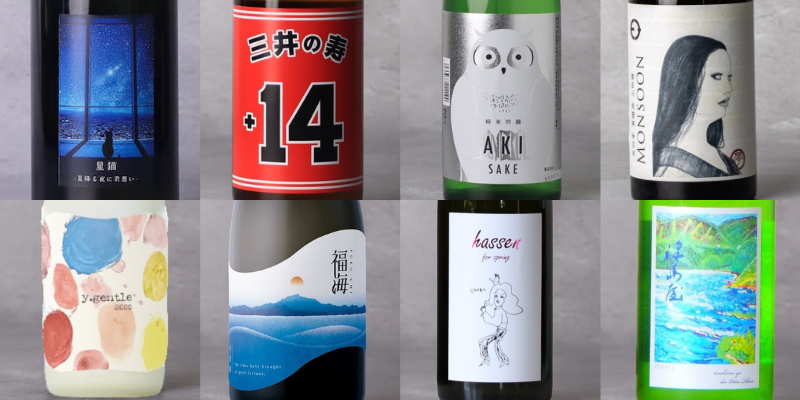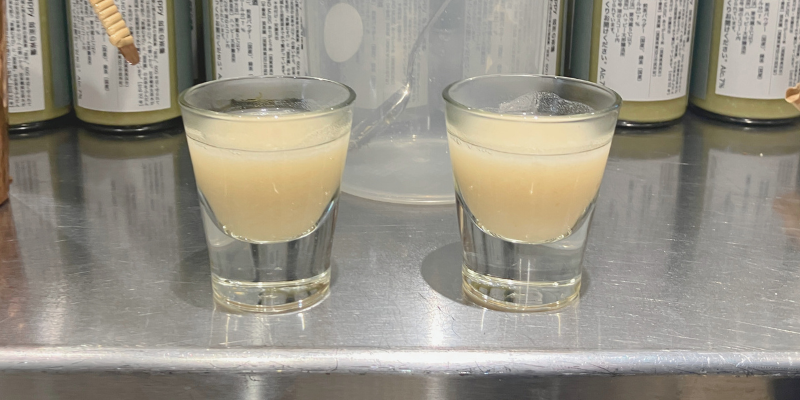Introduction to Japanese Sake Certifications
Understanding the Importance of Sake Certifications
Sake certifications are more than just pieces of paper; they represent a commitment to mastering the art of sake and understanding its diverse complexities. Whether you're a passionate sake enthusiast, a hospitality professional, or an aspiring sommelier, these certifications provide a structured learning path that covers various aspects of sake production, tasting, and evaluation.
By pursuing a recognized certification, you gain access to a wealth of knowledge that goes beyond merely enjoying a drink. You become part of a community dedicated to preserving and promoting the traditions of sake-making while exploring the innovative techniques shaping the industry today.
How Certifications Enhance Knowledge and Appreciation of Sake
Earning a sake certification involves comprehensive education, hands-on training, and exposure to different styles and expressions of sake. These programs are designed to offer a well-rounded experience that delves into the history, culture, and technical aspects of sake production.
Key benefits of pursuing sake certifications include:
- In-depth Sake Knowledge: From the rice varieties, water sources, and yeast strains used in brewing to the fermentation and aging processes, certifications cover all aspects of sake production. Understanding these elements enriches your appreciation of the craftsmanship behind every bottle.
- Enhanced Sake Tasting Skills: Sake certifications often include guided tastings that develop your ability to discern the nuanced flavors, aromas, and textures of different sakes. This heightened sensory perception allows you to evaluate and enjoy sake with a more discerning palate.
- Cultural Insights: Learning about sake also involves understanding the cultural and historical significance it holds in Japan. Sake has deep connections to traditional ceremonies, festivals, and rituals, which are integral to Japanese society.
- Professional Advantages: For those pursuing a career in the food and beverage industry, holding a reputable sake certification can open doors to exciting opportunities. Employers and customers alike recognize certified sake experts as knowledgeable and trustworthy sources for sake recommendations and expertise.
What English sake certifications are there?
As we embark on this journey through the world of Japanese sake certifications, we will explore several notable programs that cater to individuals at different stages of expertise and interest. Whether you're an absolute beginner or an experienced enthusiast looking to refine your skills, these certifications offer an array of options to suit your needs.
- International Kikisakeshi Certification
- WSET Level 3 Sake Certification
- JSA SAKE DIPLOMA International
- Sake Professional Course
Each certification has its unique strengths and areas of focus, allowing you to tailor your learning experience to align with your specific goals and aspirations. From the esteemed International Kikisakeshi to the globally recognized WSET Level 3 Sake and the specialized JSA Sake Diploma International and Sake Professional Course, you'll discover a diverse range of paths to choose from.
In the upcoming chapters, we will delve into the intricacies of each certification, exploring their origins, curriculums, benefits, and real-life perspectives from individuals who have completed these programs. By the end of this guide, you'll be equipped with the knowledge needed to make an informed decision on the most suitable certification for your sake journey.
International Kikisakeshi Certification
"Kikisakeshi" (唎酒師, sake sommelier) is a qualification for sake professionals and sellers mainly used in Japan since 1991. The International Kikisakeshi, established in 2009, is a global version with over 48,000 certified individuals. It is crucial for those in the food business to have this qualification. To enjoy sake fully, one must possess extensive knowledge about sake-making, its history, taste and aroma characteristics, and budget considerations. Understanding the technical terms on sake labels and being able to express the unique characteristics of each sake through tasting are essential skills. An International Kikisakeshi sake sommelier not only serves sake but also shares sake-related information in various contexts, including tourism and media platforms.
The International Kikisakeshi sake sommelier's ability involves planning strategies and tactics for promoting sake sales overseas and to foreign visitors in Japan. This ability is centered around consumer-centric sales promotion that benefits consumers. To achieve this, professionals must possess knowledge, technology, and the right attitude. Understanding the unique characteristics of sake compared to other alcoholic beverages worldwide is crucial. This knowledge is fundamental and the most important aspect for an International kikisake-shi, encompassing both selling points and key considerations of sake products.
Even without taking the course and examination, the textbook “NIHONSHU-NO-MOTOI The Textbook for INTERNATIONAL KIKISAKESHI” is an excellent resource for Japanese sake. The textbook is a comprehensive guide for aspiring experts in sake tasting, emphasizing the value they add to the product. It covers fundamental knowledge of various alcoholic beverages and food pairings. The book delves into specific details about sake, including its raw materials, production methods, history, and flavor characteristics. It also provides guidelines for sake tasting, serving, and sales promotion. Overall, the book aims to equip readers with a deep understanding of alcoholic beverages, especially sake, enabling them to become proficient Kikisake-shi on a global level.
More information about the International Kikisakeshi Certification.
WSET Level 3 Sake Certification

The Wine & Spirit Education Trust (WSET) is a globally recognized organization that provides education and qualifications in the field of wines, spirits, and sake. Established in 1969 in London, WSET has since become a leading authority in wine education, offering a wide range of programs to enthusiasts and professionals worldwide.
The WSET Level 3 Award in Sake is an advanced certification designed for individuals who already possess some knowledge of sake and wish to delve deeper into the subject. While it is not a prerequisite, many candidates find it beneficial to complete WSET Level 1 in Sake or a similar introductory course before pursuing Level 3. The course is available in English and in Chinese depending on the affiliated course provider.
In this course, you will learn about sake production techniques and their impact on style and quality, the different categories of sake, and the sake industry's significance in Japanese and export markets. Additionally, you'll understand the principles of storing, selecting, and serving sake. The course also covers tasting techniques using the WSET Level 3 Systematic Approach to Tasting Sake® (SAT) to assess quality, identity, and price.
This qualification consists of two units. Unit 1 assessment includes a closed-book exam with 50 multiple-choice questions and a paper with short written answers. For Unit 2 assessment, there will be a blind tasting of two sakes.
More information about the WSET Level 3 Sake Certification.
JSA Sake Diploma International
The Japan Sommelier Association (JSA) was established in 1969 to promote a better understanding of wine and other beverages in Japan. Although sommeliers are typically associated with wine, the JSA has recently shifted its focus to sake and introduced the prestigious Sake Diploma certification. The Sake Diploma is now highly regarded in Japan. In North America, the Sake School of America is the exclusive provider of the JSA Sake Diploma International course. The Sake Diploma International exam takes place annually on International Sake Day. It includes both theory and blind tasting of sake and shochu.
The J.S.A. Sake Diploma International textbook, introduced in 2018, aims to provide sommeliers and related professionals worldwide with a comprehensive understanding of sake and shochu. It is designed from a sommelier's perspective and covers various topics. The textbook includes details on sake-brewing techniques and processes, exploring how they impact taste. Additionally, it offers a systematic approach to sake tasting, applying principles from the wine tasting process. Furthermore, the book provides extensive guidance on pairing sake and shochu with various international cuisines, with pairing ideas suggested by Shinya Tasaki, the president of J.S.A. and A.S.I. Best Sommelier of the World 1995.
The course, which offers a global examination date, is available in more than 10 schools worldwide. In Japan, this certification is highly recognized and regarded as one of the most prestigious sake certifications. Obtaining this certification can prove to be beneficial for your sake endeavors, whether it's for personal interest or professional growth.
More information about the JSA Sake Diploma International.

Sake Professional Course
The Sake Professional Course, led by renowned sake expert John Gauntner, is an intensive online program aimed at industry professionals and anyone interested in sake. The course covers a wide range of sake-related topics, leaving no stone unturned. While the content is technical and comprehensive, it is open to all enthusiasts.
The five-session course includes lectures, Q&A sessions, and optional tasting exercises with sake. Completing the course qualifies participants for the Certified Sake Professional exam, which is offered online at the end of the program. The tuition fee of US$375 covers all materials and certification testing.
The course curriculum spans various aspects of sake, such as sake basics, brewing techniques, sake types, chemistry, aging, non-standard sake types, regional differences, and more. The ultimate goal is to provide the most thorough and comprehensive English-language sake education available.
By completing the program and passing the exam, participants will receive a certificate and recognition on the Sake Education Council website as a Certified Sake Professional (CSP).
More information about the Sake Professional Course.
Conclusion
Sake certifications offer an invaluable journey into the world of sake, transcending a mere appreciation for the drink into a deep understanding of its craftsmanship, culture, and history. These certifications provide a structured path for enthusiasts and professionals alike, enhancing knowledge, tasting skills, and cultural insights. Holding a reputable sake certification not only opens doors to exciting opportunities in the food and beverage industry but also signifies a commitment to preserving and promoting the traditions of sake-making.
In this guide, we have explored notable sake certifications catering to individuals at different expertise levels, offering a diverse range of paths to choose from. By the end of this exploration, you will be equipped with the knowledge needed to embark on your own sake journey and choose the most suitable certification, whether it's the International Kikisakeshi Certification, WSET Level 3 Sake Certification, JSA Sake Diploma International, or the Sake Professional Course, to further enrich your passion for this iconic Japanese beverage.
As certified professionals, we offer a curated selection of 500+ premium sake bottles for your customers abroad. Contact us now to learn more.







